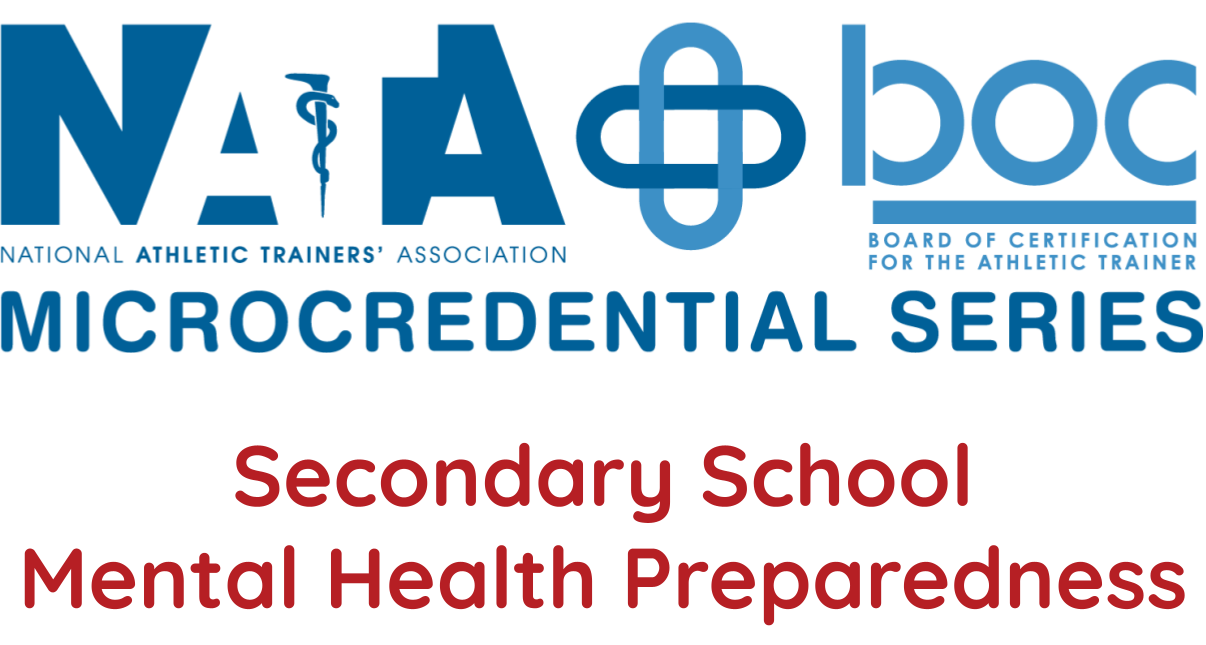
Medical Model
-
Register
- Non-member - $25
- Member - Free!
- Student - Free!
- Staff - Free!
- Certified Student - Free!
- Retired - $15
Abstract:
This topic addresses how the organizational model for athletic training can have a direct impact not only on patient care but the athletic trainer´s professional health and well-being. The presentation will introduce concepts about how the medical model can improve patient care, compensation, life balance and retention of young professionals. The presentation will cover essential level material related to both internal and external business functions of athletic training using a medical model. Examples of how this structure can be developed in multiple employment areas will be provided. This topic aligns with the domain of organizational and Professional Health and Well-being.
Objectives:
- Participants will be able to identify at least 3 main differences between the Medical Model and Traditional Model of Athletic Training.,
- Participants will be able to identify at least 3 different options to incorporate or start a Medical Model in the multiple different settings of athletic training.,
- Participants will be able to identify and discuss at least 3 different ways that the Medical Model will be able to improve patient care.,
- Participants will be able to identify and discuss at least 3 different benefits of the Medical Model for the athletic trainers' professional health and well-being.
Level:
Advanced
Domains:
Domain 5: Health Care Administration and Professional Responsibility
CEUs:
1.0 Category A
Keywords: medical model, patient care, compensation, life balance, professional health,
Enhanced Access On-Demand Course Expiration:
Access to this course will expire at the end of the membership year on December 31 at 11:59 p.m. CST.
For full details, refer to the Expiration Date Policy on our FAQ page.
Russ Richardson, EdD, ATC
For over four decades, Russ Richardson has served as an athletic trainer all over the world and in 2015, was inducted into the National Athletic Trainers’ Association Hall of Fame – and rightfully so. His list of accomplishments is far and wide, extending from the intercollegiate level to the national level, including U.S. Olympic wrestling, the World Cup of Wrestling, Skate America and USA boxing, among others. He set his roots at the University of Montana Western where he served as the head athletic trainer and later, athletic director. Although now retired, his passion for the profession still lives on.
Richardson is renowned for his holistic approach to student-athlete well-being and has been recognized for his expertise on topics such as dealing with catastrophic injury of a student-athlete, managing substance abuse and use in intercollegiate athletics and the mental health concerns in today’s student-athlete.
Christopher Heard, MS, LAT
Chris Heard, St. James Healthcare’s Manager of Therapy and Orthopedic Services, leads the Montana Sports Medicine Team and was recently recognized nationally as a subject matter expert in his field by the National Athletic Trainers Association Professional Development Committee for Strategic Issues in Athletic Training (NATA). The Montana Sports Medicine team partners with seven local schools to provide full-time, licensed athletic trainers to the thousands of student athletes in the region.
Heard and his team have been using this model since 1996. Nick DiGiovine, MD, Orthopedic Surgeon at Montana Orthopedics and Medical Director for the sports medicine program at St. James is a driving force for this program with his vision of ensuring excellent care to student athletes throughout southwest Montana. As part of the program, Dr. DiGiovine provides physician coverage for the athletes at Montana Tech, The University of Montana-Western, Butte High School and Butte Central High School. Since its inception, the program has grown to a best practice standard in the nation.


